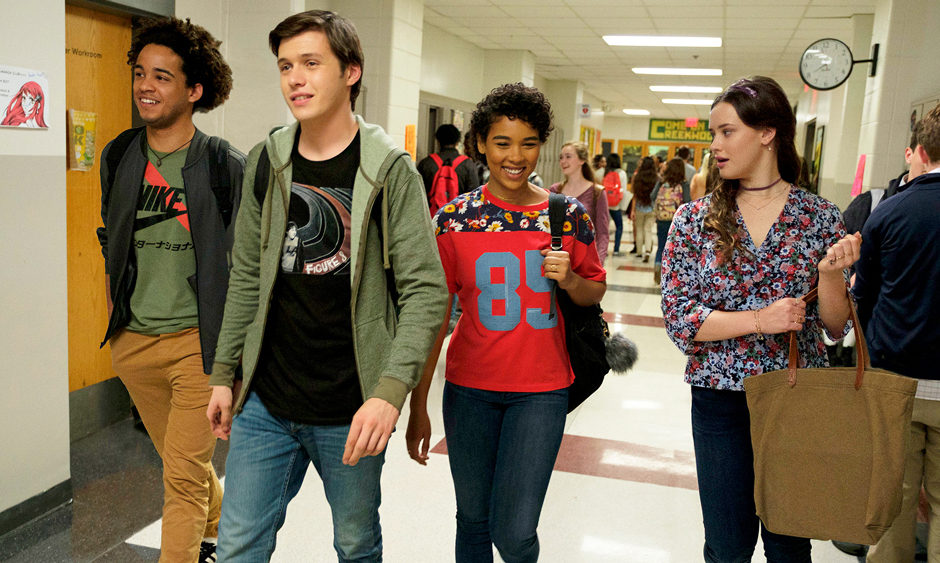“I’m just like you,” narrates Simon (Nick Robinson) in voiceover at the beginning of Love, Simon. “Except I have one huge-ass secret: I’m gay.”
Simon has a loving, normal, upper-middle-class existence, and the film goes to great lengths to bring this point home. His parents (Jennifer Garner and Josh Duhamel) are an enviable, healthy, attractive couple; his kid-sister’s chef aspirations has the whole family rallying behind her complicated breakfasts with enthusiasm; and Simon’s close-knit friends make something as tedious as carpooling into a fun-loving morning ritual.
With a supportive upbringing – aside from a few clueless jokes from his dopey but well-meaning father – Simon shouldn’t have any reason not to tell his family and friends, right? But Love, Simon challenges the notion that acceptance from loved ones is the only pressure a gay teen feels when considering coming out.
When Simon discovers an anonymous post on his high school’s message board from “Blue,” another closeted gay teen, he immediately begins a secret email exchange, signing his emails “Love, Jacques.” An anonymous exchange with a stranger going through the same experience gives Simon the kind of support his straight family and friends cannot provide. Then, as Simon falls for Blue, he begins to suspect several classmates might be his closeted friend. Each time, he imagines Blue typing him an email, and each time, the new face is revealed in a slow, delicious pan. It’s a contrived but admittedly effective visual device that illuminates the alluring power of idealized adolescent romantic fantasy fuelled by anonymity.
Like all romantic dramedies, Love, Simon has more than its fair share of zany characters popping up. There’s Tony Hale as an adorkable, well-meaning and overbearing principal. Clark Moore plays a confident gay man who knows exactly how to put bullies in their place. Martin (Logan Miller) is an attention-hungry (yet untalented) theatre kid with a never-ending supply of terrible punny graphic tees to go along with a crush on Simon’s friend Abby (Alexandra Shipp).
When Martin stumbles onto Simon’s emails to Blue, he threatens to publicly post them unless Simon helps him get Abby to like him. Cue the dramatics. While Love, Simon is indebted to the classic John Hughes teen films of the past, it does at least critique one of the genre’s most eye-rolling conventions: the public declaration of love. So often manufactured to be the protagonist’s triumphant “unlocked achievement” moment, here it’s shown for the selfish act it really is, teaching not only Simon but the clueless Martin a lesson in love.
Love, Simon has its problems. Its depiction of teen gay identity issues is simplistic, like Simon’s fantasy of coming out surrounded by peers dancing energetically around him, and another admittedly comedic montage in which Simon asks the viewer to imagine a world where straight people have to come out to their parents. While the film is explicit in outlining its core message – that a gay kid can still struggle with coming out while everything else in their life is as square as possible – that picture of normalcy leaves the viewer wanting more depth from the characters.
The photogenic Robinson, cuddly and harmless as his fleece-lined jean jacket, doesn’t get much to play with aside from those two character traits. Nonetheless, Love, Simon diversifies the canon of gay coming-of-age movies, wherein protagonists are often alienated, and offers an undeniably satisfying, cheesy and often hilarious teen romance.

